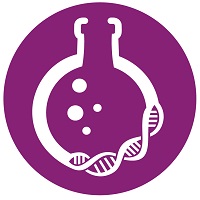Bioanalytics – Biomolecular
Prologue: Complexities in Defining/Designing Bioanalytical Strategies to Characterize Pharmacokinetics for CGT
-

Hiroshi Sugimoto, PhD
Associate Director
Takeda
Cambridge, Massachusetts
Prologue Speaker(s)
Distinct from the case of conventional antibody-based protein or small molecule therapeutics, the definition and conceptualization of pharmacokinetics for cell and gene therapy are more challenging. This session will highlight the integrated quantitative bioanalytical strategy to address the complexity of characterizing pharmacokinetics in cell and gene therapy.
In the case of ex vivo gene therapy (i.e., CAR-T cell therapy), the pharmacokinetic measurement includes cellular kinetics and biodistribution to the tumor or other tissues. The bioanalytical assay platform may include qPCR/ddPCR for transgene copy number, flow cytometry for the CAR-expression and imaging technique. The quantitative analysis of armoring cytokines and chemokines remains to be addressed to investigate the safety and immunogenicity of the therapeutic molecule.
In the case of in vivo gene therapy, the pharmacokinetic measurement includes biodistribution and vector shedding. The bioanalytical assay platform may include qPCR/ddPCR for vector genome, RT-qPCR/ RT-ddPCR for transgene mRNA, LBA or LC/MS for transgene protein. In addition, quantitative measurements of enzymatic activity resulting from the expression of a transgene protein are often required as a part of the pharmacodynamic assessment and downstream pathway-related biomarker measurements.
This session will highlight the quantitative bioanalytical strategy involved in cell and gene therapy and then explore the development and implementation of the bioanalytical assay platform to characterize the pharmacokinetics for cell and gene therapy.
Learning Objectives:
- Participants will be able to identify common definitions for PK analysis in gene therapy
- Participants will be able to identify common approaches to PK analysis in cell therapy
- Participants will be able to describe strengths, limitations, and complexities of different assay formats for use in quantitative PK analysis for cell and gene therapy programs.

